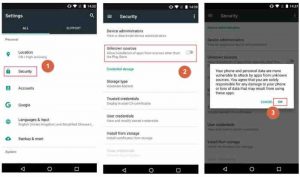Top 3 Web Application Firewall Security Benefits

Ever since they were first introduced, computers and network firewalls have been of great help in securing individuals and organizations from hackers, malicious viruses, and malware.
However, with the rapid advances in technology, especially in mobile platforms and the Internet, in general, the need to use better and more advanced firewalls has become mandatory.
As new threats keep emerging every few months, it has become imperative to adapt to new technologies, including web application firewalls or WAFs.
What is a Web Application Firewall?
A web application firewall provides enhanced protection by working through an application and blocking all service calls, outputs and inputs, and data requests that do not meet preset rules of an HTTP conversation.
WAFs are quite adept at blocking malicious attacks because they don’t require modification of the application’s source code.
Web application firewalls were developed as extra security features in response to threats that cannot be handled by traditional computer firewalls. The new threats use authorized protocols such as HTTP and have the ability to attack systems or applications using the HTTP protocol.
The attacks often appear disguised as authentic requests for data on your website or apps. Traditional firewalls view such attacks as genuine requests and are unable to provide sufficient protection against the attacks.
As soon as the disguised requests gain access to your application or website, they can be used by hackers to divulge sensitive data on your database such as customer credit card and personal details. A web application is designed to stop such attacks from succeeding.
Benefits of Web Application Firewalls
There are many ways a WAF can help bolster your security and keep your website and applications safe.
Here are some of the key benefits of WAFs:
1:- Protect Your Sensitive Data from Unauthorized Access or Exposure
A web application firewall is quite beneficial to any business, organization, e-commerce, or online store that stores private user data. It helps to protect user data from unauthorized access and exposure.
Data loss can have severe consequences, including loss of customer trust, financial losses, and may even attract penalties from data regulation bodies such as the PCI DSS, HIPAA, and GLBA.
WAFs effectively filter out malicious web traffic and allow your business or organization to manually decide who to deal with securely.
With a reliable web application firewall, you’re assured of the best protection for your websites and applications from data theft and fraud.
2:- Automated Scans and Patches
It’s always recommended that you run scans to check for vulnerabilities regularly, but unfortunately, most businesses and organizations can only scan their applications and websites a few times a month or even quarterly.
If a threat is detected, you can immediately fix the problem or patch the application before more damage is done. However, not every business has the expertise or skills to handle the threat or vulnerability immediately.
The good news, though, is web application firewalls use your scan results and automatically patch the application any time a threat is detected.
3:- WAFs Help to Stop Data Leakage
Detecting data leakage can be tricky, given the numerous scenarios that hackers use to access your data.
The leakage can be caused by something as innocent as a malicious error message sent to a user. Fortunately, with a web application firewall, you can easily stop data from leaving your network if something suspicious happens.
Most WAFs have built-in behavioral signatures that identify suspicious requests for sensitive data, such as customer credit card and personal information.
Conclusion
You should always have a web application firewall as an essential part of your business. The WAF makes it easy and safe to deal with your customers by enhancing the security posture of your business.








